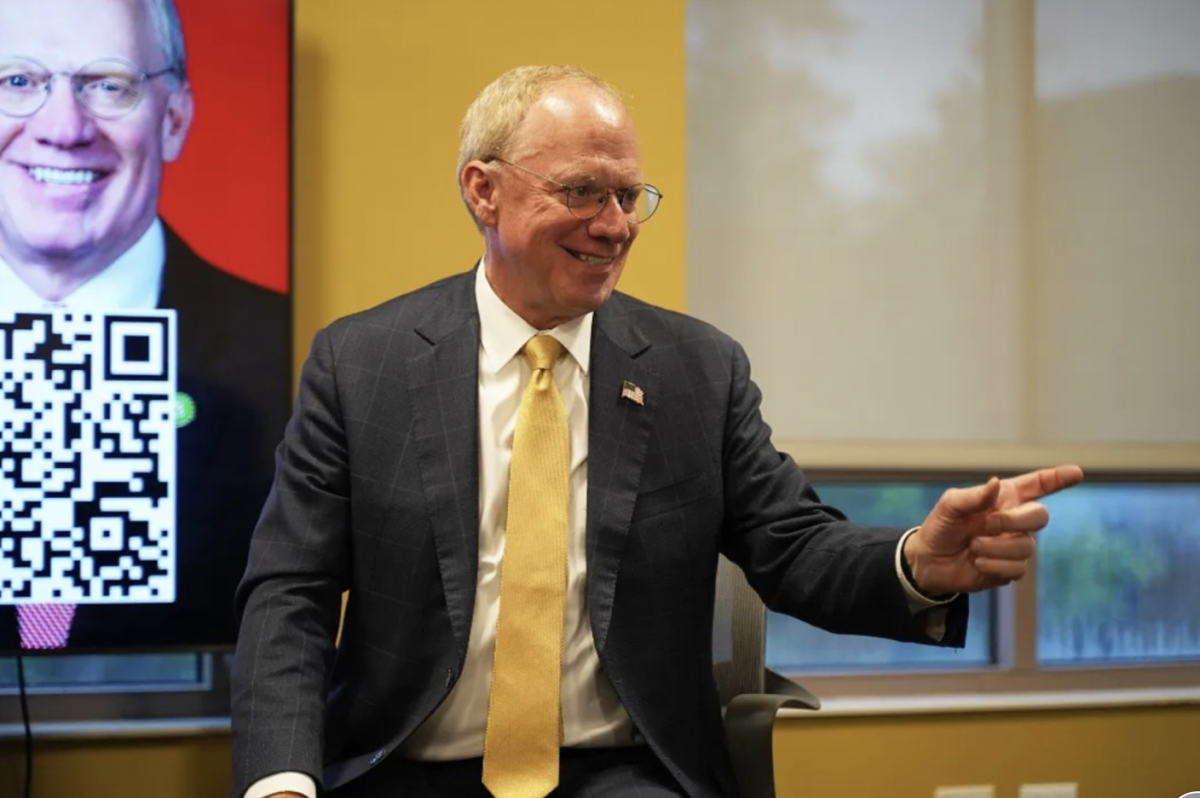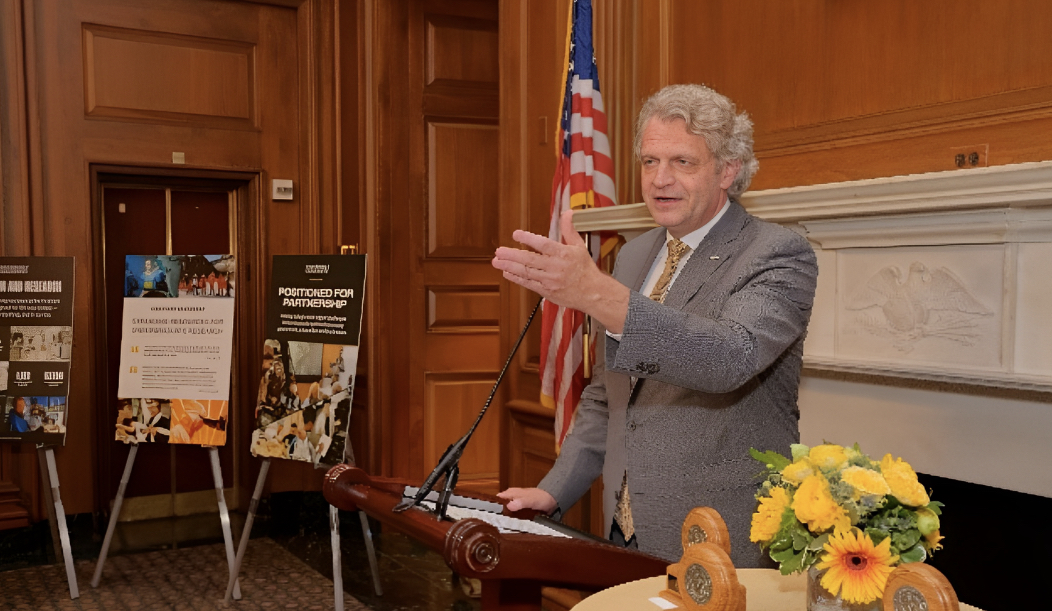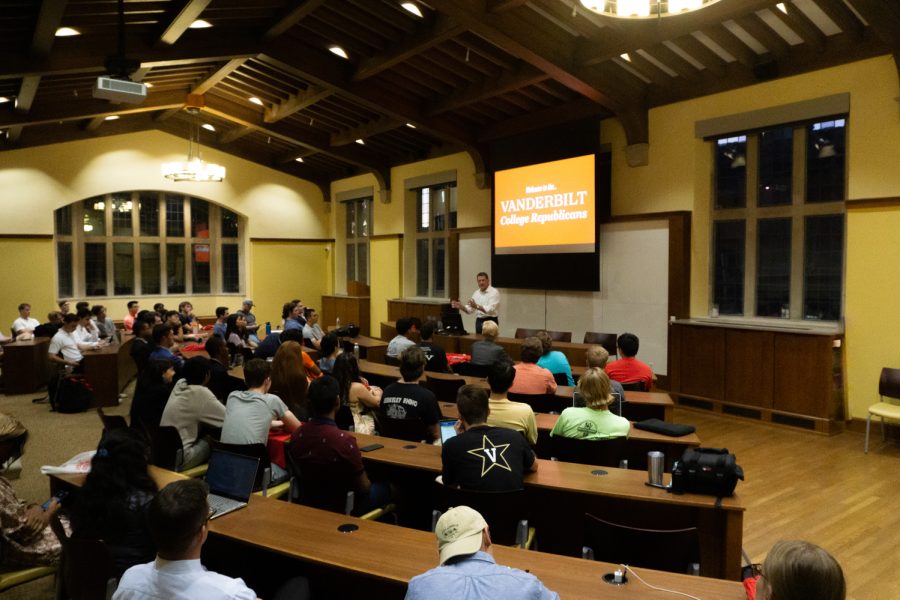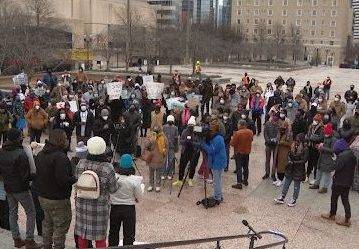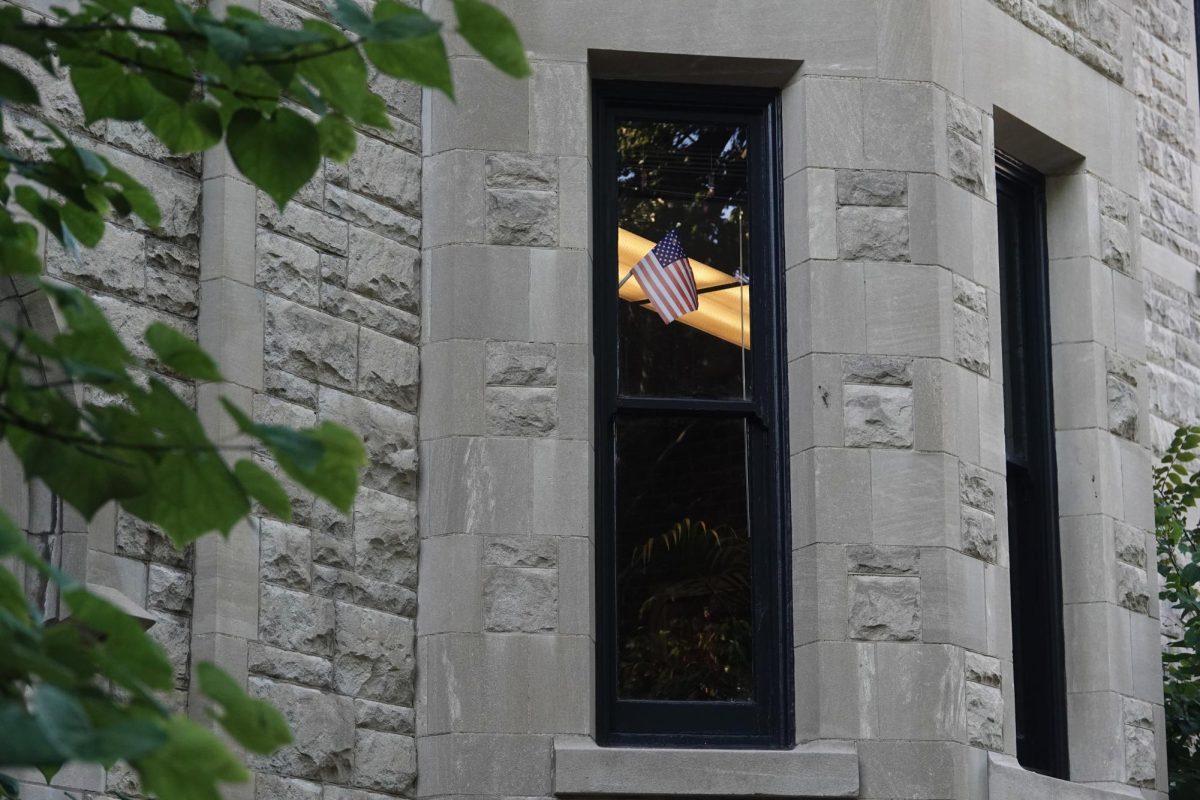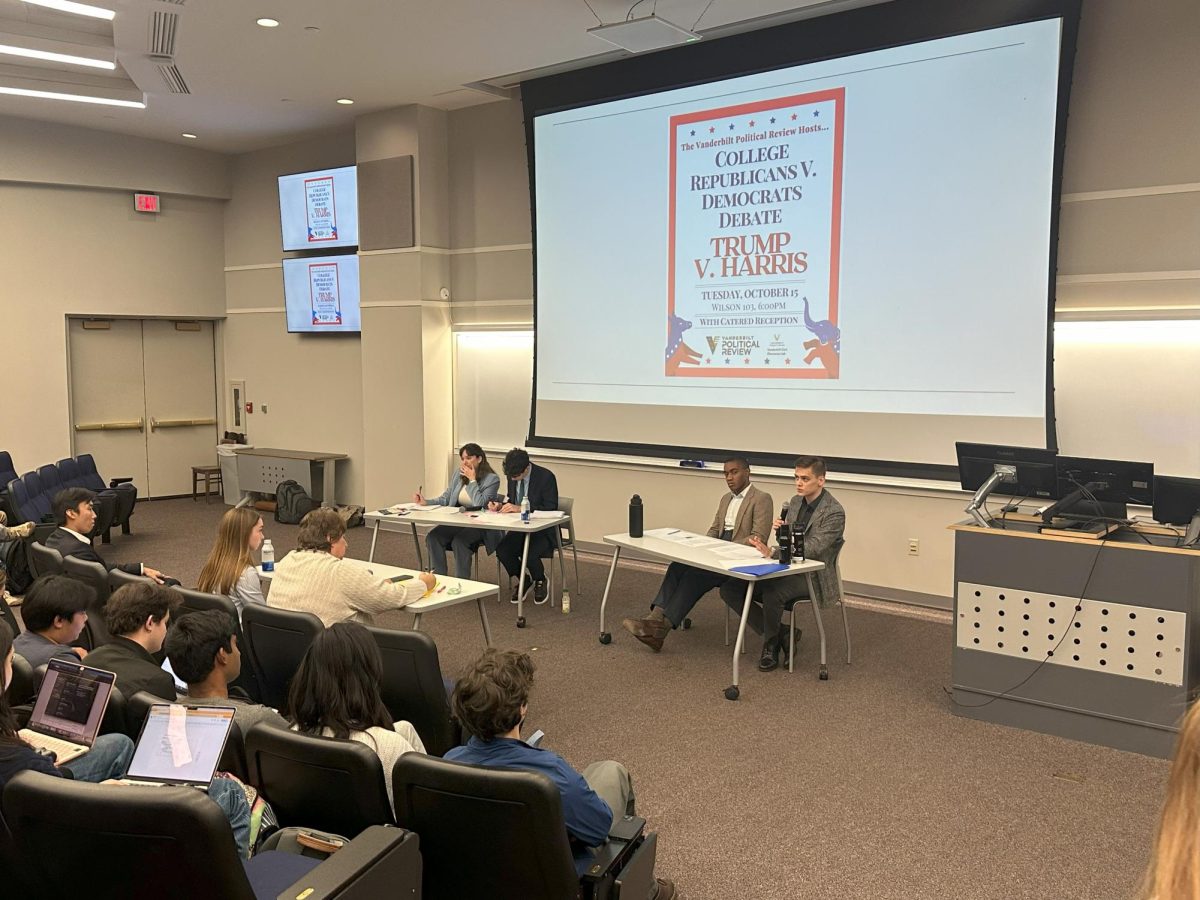Vanderbilt College Republicans hosted U.S. Representative John Rose (TN-06) (J.D. ’93) in Sarratt Student Center on Sept. 4. The discussion was moderated by VCR President Noah Jenkins, a junior, and focused on policy issues such as agriculture and food production, immigration, the U.S. economy and gun violence.
Rose began by detailing his daily life as a congressman and his journey into politics. Rose explained that becoming a politician was not his lifelong dream but rather a response to his frustration with the political landscape during the 2016 presidential election.
“I got really interested in the [2016] presidential race as a supporter of Donald Trump,” Rose said. “Then I was very frustrated in 2017 when I felt like the Republican majority in Congress was not supporting the President and his efforts to get the country back on track.”
Rose said that his wife, Chelsea Rose, inspired him to become a congressman during the election.
“She was tired of hearing me lament [about the Republican majority], so she asked me, ‘What are you going to do about it?’ I asked what she meant by that, and she said ‘You should run for office,’” Rose said. “And so that’s where the journey started.”
Agriculture and food policy
As the conversation transitioned to policy issues, Jenkins asked Rose about the current national state of agriculture. Rose, an eighth-generation farmer on his land located in Smith and DeKalb counties, said that despite increased food prices, the food supply has also increased in recent decades.
“I think we sometimes take for granted that [today] in the United States we have the most abundant, diverse, affordable and safe supply of food and fiber in the history of humankind,” Rose said. “From a political perspective, I may be ignoring the fact that in the past three and a half years, we’ve seen 20% to 40% inflation for food costs. But even with that, food is readily available.”
Rose then explained the government efforts and programs that allow farmers to support themselves in the food production industry. He expressed support for the Supplemental Nutrition Assistance Program, saying it has helped maintain the agricultural market in America and has increased access to nutrition assistance across socioeconomic classes.
“An important part of food policy in this country is maintaining a safety net [for farmers],” Rose said. “[The government] supports crop prices, crop insurance, agricultural research and various loan programs that help farmers stay in business.”
Jenkins expressed his gratitude for Rose’s opinions on the state of American agriculture after the event, believing this to be a policy issue often overlooked in the media.
“We don’t really talk about it a lot compared to Russia, China, immigration or more popular issues,” Jenkins said. “Part of why we wanted to host Rose was that he had a lot to say about agriculture given his background, and what he had to say was very insightful.”
Immigration
The discussion transitioned to immigration and addressed illegal immigration and President Joe Biden’s border policy. Rose clarified that he believes immigration could benefit the United States, particularly in the agricultural sector but subscribes to strict border policies to prevent illegal immigration.
“I’m very much pro-immigration, and I think we should figure out ways to allow the numbers of people that we need in our country to come here legally,” Rose said. “But, we should not just have open borders because lots of people would like to come here and basically change our country or take advantage of this country one way or another.”
Rose then commented on Biden’s immigration policies, saying that Biden is not doing enough to secure the southern U.S. border.
“Most estimates are that between 10 and 20 million people have gotten into the country illegally over the last three and a half years,” Rose said. “It’s not a failure of Congress to act; we have immigration laws. The President has every tool he needs to stop this.”
Rose believes that Biden’s immigration policies are driven by political gain, particularly in terms of Congressional apportionment.
“The most likely reason [for Biden’s policies] is that the President believes that these folks are going to be counted in the future apportionment of representation in Congress,” Rose said. “Let’s say 5 million [illegal immigrants] end up in California. There is an implicit hope that those people will eventually obtain legal citizenship status and become voting members of the electorate that will support the Democratic party.”
National economy
Rose described the U.S. national debt as the “number one problem” facing Americans, specifically young people.
“Whenever [Congress] talks about passing a budget, the topic of national debt always comes up. I think we’re now north of a $35 trillion [debt],” Rose said. “So my question is: what are we going to do about that in the long term? Young people are the future, so from your perspective, what should we do about that problem?”
Rose explained that the solution is for Americans to expect less services from the government and strive to live modestly.
“We have to live within our means,” Rose said. “So that means we’ve got to start paying higher taxes to support this profligate government that we have, or we’ve got to start expecting less from the government. We have to quit expecting gold-plated everything, and we’ve got to become self-sufficient.”
Gun violence
Jenkins ended the conversation with the topic of gun rights and violence, noting the school shooting that occurred in Winder, Georgia, on Sept. 4 and resulted in four fatalities. Jenkins asked Rose what role he saw the federal government playing in recent gun violence, to which Rose affirmed his belief in the Second Amendment.
“The Bill of Rights is very important, and I don’t think we can really single out one of the deliveries that are secured by the Bill of Rights over another,” Rose said. “If we let the Second Amendment slide by the wayside, then I think all of our other freedoms and liberties are in jeopardy. It’s about me defending myself and the people defending themselves from tyranny.”
Rose acknowledged that while gun violence is a problem in the United States, it does not outweigh Americans’ constitutional right to bear arms.
“When it comes to the role of the federal government, it’s reasonable to think about how we keep weapons out of the hands of criminals,” Rose said. “I think if someone’s an insane criminal or mentally unstable, there needs to be regulations. But that’s up to the states to figure out.”
Jenkins said he believed that the event went well overall, and he expressed gratitude for the opportunity attendees were given to connect with Rose personally.
“Rose stayed back after the conversation and talked to us for quite a while, which was great,” Jenkins said. “I wish more people came to the event, but for those who attended, it was very well-received.”

